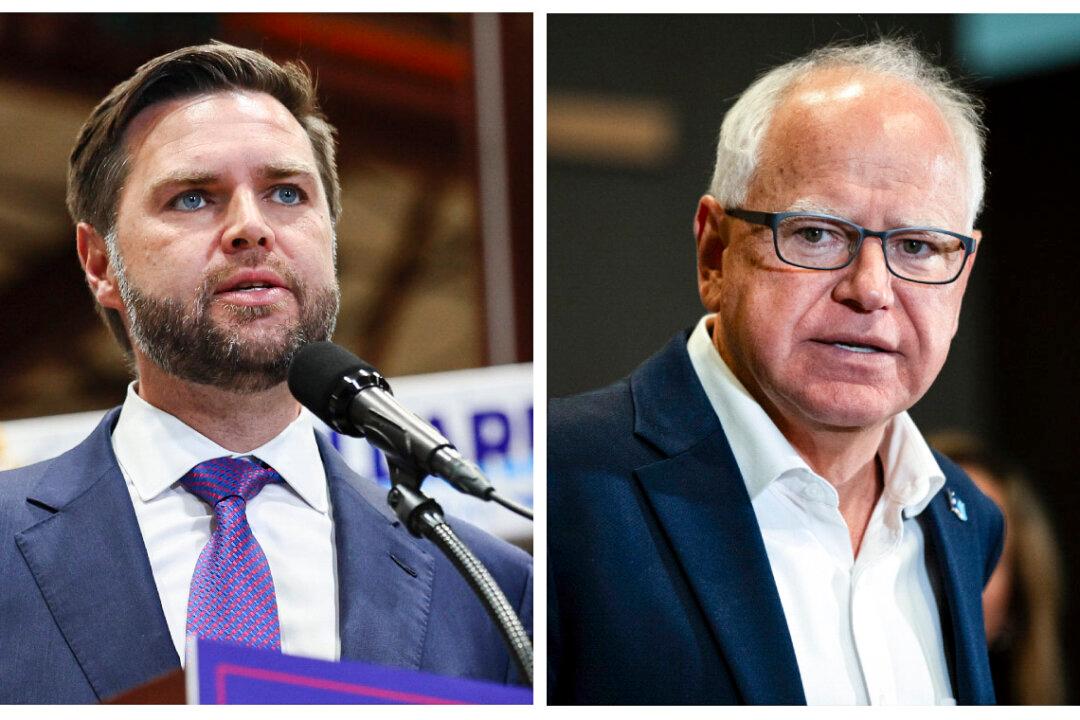The two vice presidential nominees—Sen. JD Vance (R-Ohio) and Democrat Minnesota Gov. Tim Walz—will face each other in a debate on Oct. 1, one month out from the 2024 election.
Debate host CBS News announced on Aug. 15 that after proposing four dates for the matchup—Sept. 17, Sept. 24, Oct. 1, and Oct. 8—the Harris–Walz campaign quickly agreed to the third.





